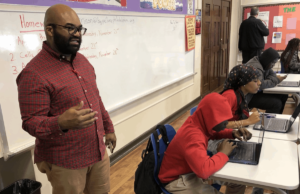19 NextGen Learning Grants
Next Generation Learning Challenges announced $7 million in grants to 19 innovative, technology-enabled programs that are helping students master middle grade math and literacy.
Ian Quillen, EdWeek summarized the ask: “Proposals that used technology to address teaching 7th and 9th grade Common Core State Standards material. Universities took almost half of the awards. Ian noted that, “The Louisiana Department of Education and its virtual school algebra program represent the only public K-12 education winner that will receive grant money” from the Gates Foundation funded initiative.
Grants will support both proof-of-concept and the early-stage adoption of programs in order to help refine promising approaches.
“We believe learning technologies and next generation design models can produce transformative change for students by personalizing learning, and making it more meaningful by relating to their passions and interests,” said Susan Patrick, President and CEO of iNACOL, a NextGen partner (where I’m a director)
Sector trends evident in the list of winners include customized learning, high engagement environments, and relevant learning experiences. It’s great to see a handful of games on the list. I’m not sure any of these will break through, but more proof of concept will encourage investors.
The 19 winners are listed below:
CAST, Inc.: universal design for learning modules
Classroom, Inc.: simulated workplaces
DaVinci Minds, Inc.: integrated middle school career, math, and science curriculum
EdNovo.org: free web learning platform
Education Development Center, Inc.: word games for 7th graders
Hofstra University: WISEngineering engages 7th graders with real-life math problems
iCivics Inc.: online civic education platform founded and led by Justice Sandra Day O’Connor (demo)
Imagine Education: Ko’s Journey, math games (demo)
Louisiana Department of Education: virtual algebra course
Massachusetts Institute of Technology: Lure of the Labyrinth game (demo)
North Carolina State University: Crystal Island, a science mystery game
SMALLab Learning, Inc.: motion-tracking technology to increase science knowledge via physical movement.
Scholar Rocket, Inc.: LearningMatch, short instructional videos
Texas Tech University: update to APS4Math
University of Massachusetts: adaptive mathematics tutoring system
University of South Florida St. Petersburg: math representations and sims
University of Wisconsin-Madison: digital text, simulations, and design challenges
WNET: real-world problems through online challenges presented by professionals in fields of interest (demo)
Worcester Polytechnic Institute: ASSISTmentsis, a browser-based “expert system” offering immediate math assistance
For more, see:








0 Comments
Leave a Comment
Your email address will not be published. All fields are required.